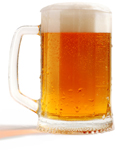 Your gallbladder is about four inches long and rests on the right side of your body, just under the liver. It performs one very important job: it holds toxins from the liver until they can be released from your body. When blood flows into your liver, it removes all the toxic and poisonous stuff from your blood and mixes it with a substance called “bile.” Bile is a digestive agent that contains cholesterol, bile salts, and lecithin, amongst other things. Bile is passed to your gallbladder where it is temporarily stored until food arrives in your small intestine. When this happens, the bile is released and passes through the cystic and bile ducts into the small intestine. Eventually the toxins are passed out of your body as waste.
Your gallbladder is about four inches long and rests on the right side of your body, just under the liver. It performs one very important job: it holds toxins from the liver until they can be released from your body. When blood flows into your liver, it removes all the toxic and poisonous stuff from your blood and mixes it with a substance called “bile.” Bile is a digestive agent that contains cholesterol, bile salts, and lecithin, amongst other things. Bile is passed to your gallbladder where it is temporarily stored until food arrives in your small intestine. When this happens, the bile is released and passes through the cystic and bile ducts into the small intestine. Eventually the toxins are passed out of your body as waste.
Normally, your gallbladder, like most of your organs, works like clockwork doing its job without you ever being aware of what’s going on. But sometimes one of the compounds in bile — usually cholesterol — becomes so saturated that it forms a solid. This is called a “gallstone.” It is estimated that as many as one in 10 people have gallstones, though they might not know it. Gallstones may not necessarily cause you any problems, but sometimes when one is pushed out of the gallbladder, it gets stuck in the bile duct. This can cause a lot of pain and is what is known as a “gallbladder attack.”
Gallstones can also cause nausea, vomiting, and severe pain in the chest. Pain can last from half an hour to several hours. If a gallstone blocks your bile duct you can experience chills, shaking, and even jaundice. If your gallbladder becomes inflamed, it can actually be life-threatening.
The best way to deal with gallstones is not to get them in the first place. Treating them after they form can be a bit more of a challenge. Diet, as with many health conditions, is probably your best line of defense against gallstones and gallbladder attacks.
Research shows that diets high in fiber and low in fat could help prevent the formation of gallstones. Vitamins C and E are important, too. A deficiency in vitamin C can lead to gallstone formation. Vitamin E prevents fats from becoming rancid.
Now here’s one more thing to try in the form of a little bit of good news for those of you tired of being told to eat more green vegetables: have a glass of beer or wine. In one clinical study performed at the University Hospital Ulm in Germany, researchers found that alcohol helped to prevent gallstone formation.
Remember to use alcohol in moderation. Overindulging negates any positive effect it may have on your gallbladder, or your health in general. In addition, if you’re on any sort of medication, check with your pharmacist to see you’re able to drink alcohol at all.
